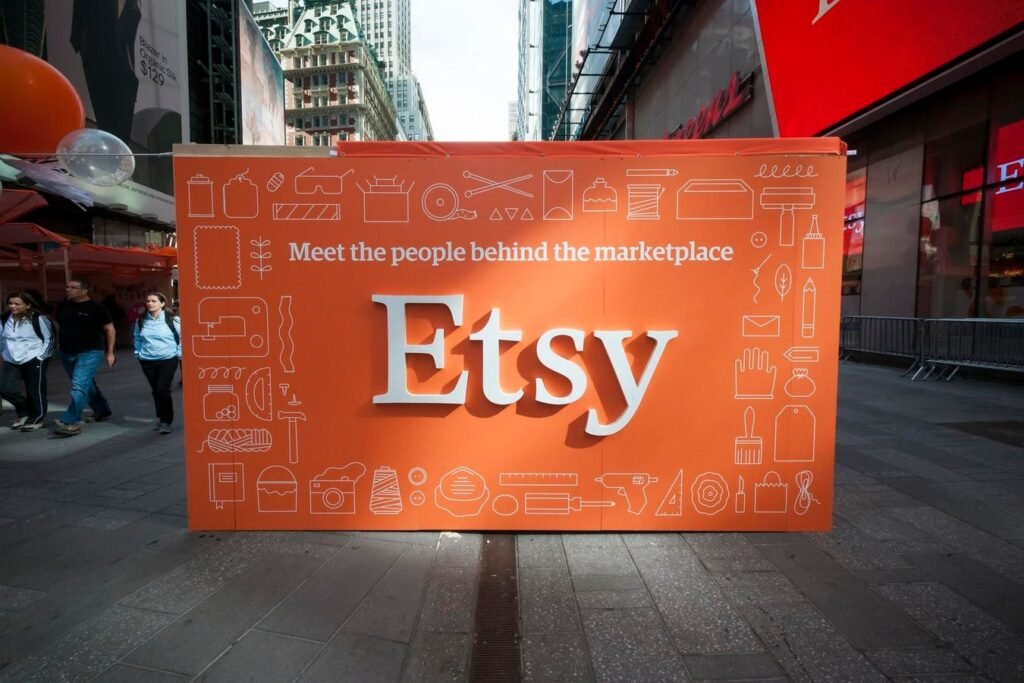Etsy recently strengthened its ban on pornography and sex toys on its site, but two weeks later, the artisanal retail site still hosts thousands of listings violating that criteria. While searches for specific terms like “porn” and “pornography” do not return any results, searches for slang terms and sex toys yield plenty of results that violate Etsy’s new policy. Etsy defines pornography broadly as any material that explicitly describes or displays sex acts, but the company continues to host listings that clearly violate its policies, such as adult toys and explicit language.
Despite Etsy’s efforts to enforce its new policy on adult content, the site continues to host violative listings. One vendor of adult toys was forced to end sales immediately after receiving an automated enforcement message from the company, resulting in a significant loss of income for their small business. Etsy spokesperson Lily Glass stated that the company has removed “thousands” of accounts since the new policy went into effect and uses automated controls combined with human reviews to enforce its policies. However, the company still hosts a significant number of listing violating the new guidelines.
Historically, Etsy has struggled to enforce its policies on pornography, as evidenced by a Forbes investigation last December that found the site hosting deepfaked nude images of well-known celebrities. While Etsy removed those items when flagged by Forbes, it continues to host thousands of AI-generated pornographic images. Some observers are puzzled by the company’s failure to effectively moderate listings with specific terms related to pornography, while allowing listings with conventional slang or anatomical specificity. Content moderation experts question why Etsy hasn’t taken more aggressive action in enforcing its new policy on adult content.
Etsy’s new policy on porn comes at a time when other online platforms, like Pornhub, are facing increased scrutiny and implementing stricter age verification measures. The Kids Online Safety Act (KOSA) is also making its way through Washington, which would require platforms like Etsy to prevent users under 18 from seeing harmful content, potentially including pornography. Critics of KOSA argue that it may be overbroad and violate the First Amendment. NetChoice, a tech lobbying group of which Etsy is a part, has come out against KOSA, calling it an unconstitutional law that will not effectively protect users.
In addition to its porn problem, Etsy has been dealing with other issues related to AI-generated content, such as unusual coloring books and cheap coffee mugs with various slogans. The company recently hired a chief brand officer and released a new video advertisement emphasizing its commitment to “keep commerce human.” In its second-quarter earnings report, Etsy’s profit dropped 14% year over year to $53 million. As the company works to clean up its image and enforce its new policies, it faces challenges in effectively moderating adult content on its platform and maintaining its reputation among users and investors.
As Etsy continues to navigate the complexities of enforcing its policies on adult content, the company faces pressure from regulators, lawmakers, and advocacy groups to prevent underage users from accessing harmful material. The debate over content moderation and online safety laws like KOSA highlights the ongoing challenges for platforms like Etsy in balancing freedom of expression with the need to protect vulnerable users. With its market cap approaching $10 billion, Etsy’s handling of these issues will be closely scrutinized as it works to address its porn problem and maintain its position as a leading artisanal retail site.

